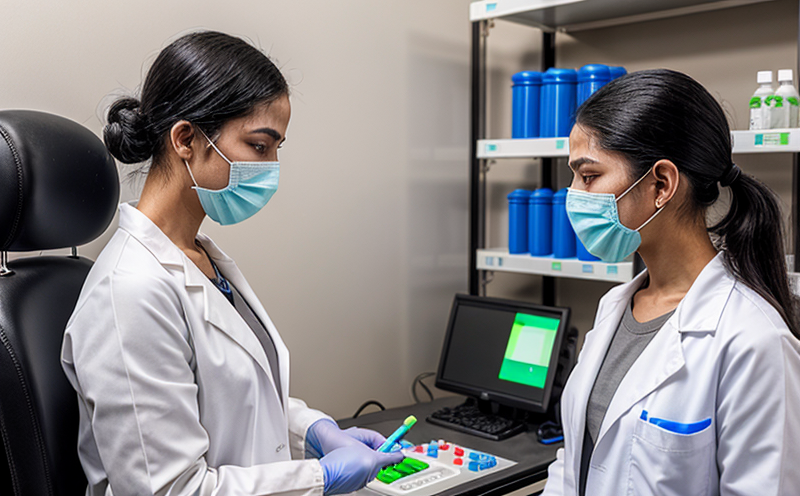Safety Pharmacology Early Tumorigenesis Detection Testing
Safety pharmacology early tumorigenesis detection testing is a critical component of drug development, particularly in the pharmaceutical sector. This service involves comprehensive evaluation of potential carcinogenic and mutagenic risks at an early stage of drug discovery and development. The primary goal is to identify any genotoxic or carcinogenic properties that could lead to tumorigenesis, thereby ensuring patient safety and regulatory compliance.
The testing process begins with the selection of appropriate animal models and test protocols based on international standards such as OECD guidelines (OECD 491) for early detection of tumorigenic potential. These tests are designed to mimic human physiology as closely as possible, using advanced technologies like in vitro assays and ex vivo models.
The testing process typically involves several stages:
- Initial Screening: This stage includes preliminary evaluations such as micronucleus test (OECD 476) to assess direct genotoxicity. These tests are crucial for understanding the immediate effects of a compound on DNA integrity.
- In Vivo Studies: Further evaluation is conducted using in vivo models like the mouse lymphoma assay (Ames test, OECD 471) and the bone marrow micronucleus test (OECD 476). These studies provide insights into potential mutagenic effects by observing changes in cell division.
- In Vivo Tumorigenicity Studies: The final stage involves long-term in vivo studies to observe the development of tumors over time. This phase often uses two-year carcinogenicity studies (OECD 452) and is critical for detecting early signs of tumorigenesis.
The results from these tests are meticulously documented and analyzed to ensure accurate risk assessment. The data generated provides valuable insights into the safety profile of a drug candidate, helping researchers make informed decisions about its further development or potential clinical trials.
Our state-of-the-art laboratories employ advanced instrumentation such as flow cytometers for cell cycle analysis, comet assays for DNA damage detection, and histopathology tools to assess tissue changes. These tools ensure that our testing protocols are both precise and reliable.
The expertise of our team is complemented by adherence to strict quality control measures, ensuring that all test results meet the highest standards of accuracy and reproducibility. By leveraging these comprehensive safety pharmacology tests early in the drug development process, pharmaceutical companies can significantly reduce the risk of late-stage failures due to genotoxic or carcinogenic effects.
In summary, our service offers a robust framework for detecting potential tumorigenic risks at an early stage, providing a strong foundation for safe and effective drug development. This approach not only enhances product quality but also supports regulatory compliance and market success.
Industry Applications
- Cancer Research: Identifying compounds that may contribute to cancer development early in the research process.
- Cardiovascular Drug Development: Assessing potential mutagenic effects of cardiovascular drug candidates.
- Nanotechnology Applications: Evaluating the genotoxicity and carcinogenicity risks associated with nanomaterials used in medical applications.
Quality and Reliability Assurance
We uphold strict quality control measures to ensure that all test results are accurate and reproducible. Our laboratories are equipped with the latest instrumentation, including flow cytometers, comet assays, and histopathology tools, which contribute to the precision of our testing protocols.
Our team of experts is committed to maintaining high standards of compliance with international guidelines such as OECD, ensuring that all results meet regulatory requirements. Regular calibration and validation of equipment further enhance the reliability of our tests.
Competitive Advantage and Market Impact
By offering early tumorigenesis detection testing, we provide pharmaceutical companies with a significant competitive edge. This service enables them to make informed decisions about drug development, reducing the risk of costly failures and delays. Our comprehensive approach ensures that only safe and effective drugs reach clinical trials and eventually the market.
The ability to identify potential risks early in the process also enhances product quality, leading to increased market success and consumer trust. This service is a cornerstone of our commitment to excellence in pharmaceutical testing, ensuring that we contribute to safer and more effective healthcare solutions.





